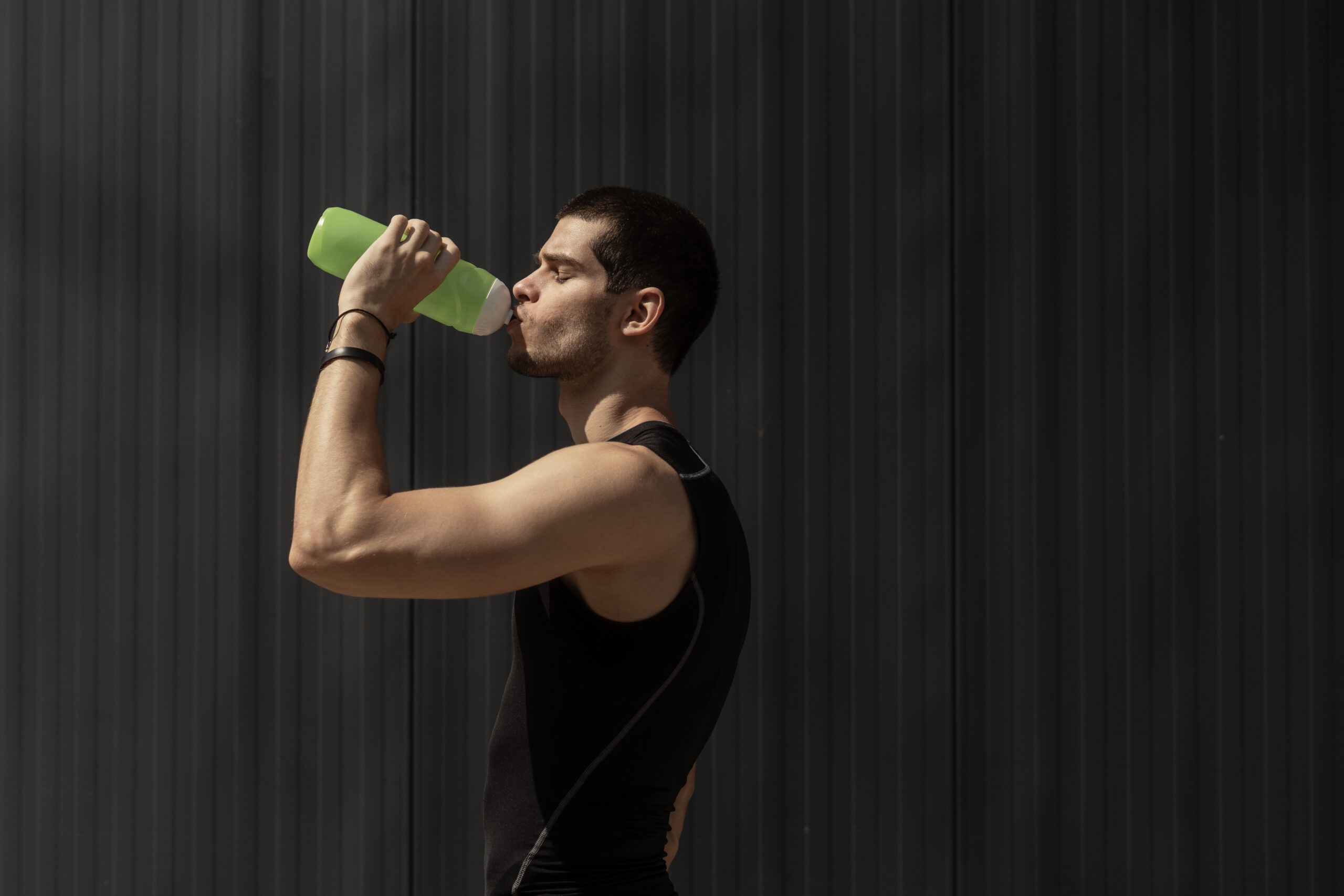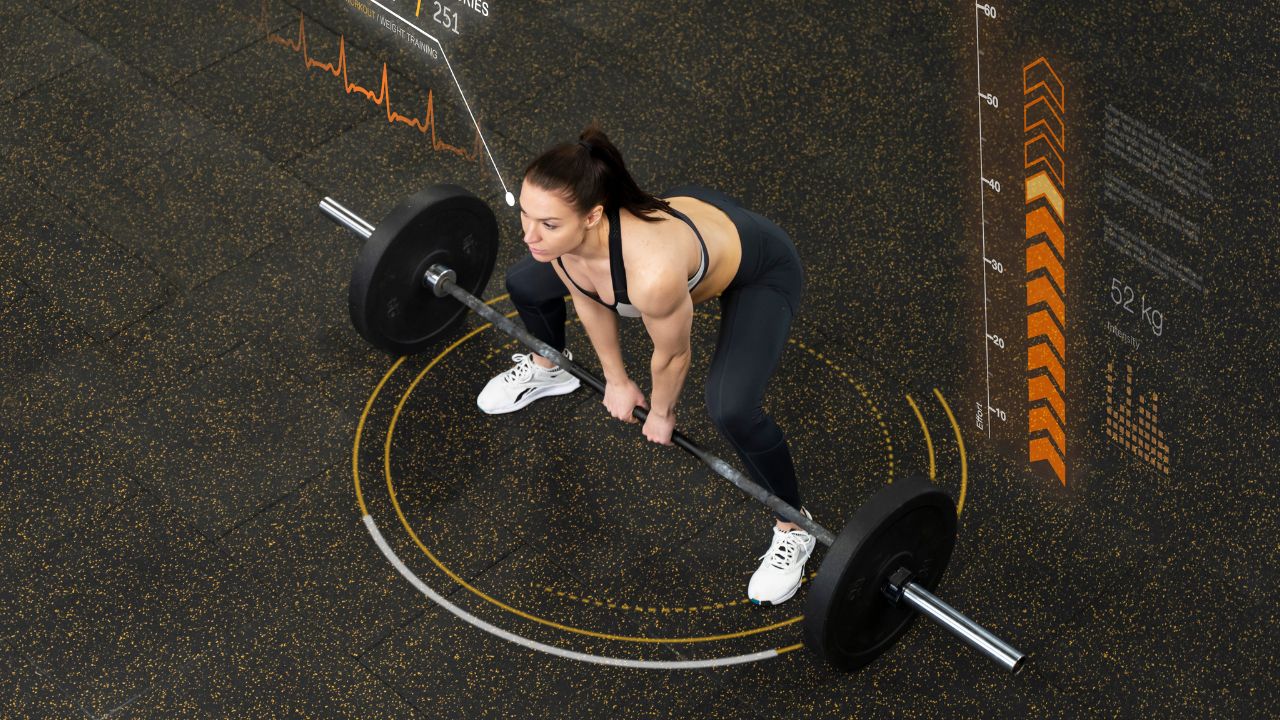Creatine is a popular supplement among athletes and fitness enthusiasts, known for enhancing muscle strength and performance. However, an often-overlooked aspect of creatine supplementation can significantly impact its effectiveness and your overall health – hydration. This comprehensive guide will explore the vital question: “How much water should I drink if I take creatine?” We’ll delve deep into the science behind creatine and its impact on your body’s water balance and provide practical recommendations to ensure you optimise your creatine regimen and your hydration levels.
Understanding Creatine
Before we dive into the water aspect, let’s have a quick refresher on what creatine is and how it works in your body. Creatine is a naturally occurring mixture found in small amounts in certain foods and synthesised in your liver, kidneys, and pancreas. It plays a crucial role in energy creations, particularly during short bursts of intense physical activity.
When you supplement with creatine, you’re increasing the available energy for your muscles, allowing you to push harder and longer during workouts. This, in turn, can lead to more incredible muscle growth and improved exercise performance.
The Water Connection
Now, let’s connect the dots between creatine and hydration. When you take creatine, your body goes through a series of processes to store it in your muscles. One of these processes involves water retention. Creatine draws water into your muscle cells, increasing their hydration levels. This is why some people experience a slight increase in body weight shortly after starting creatine supplementation.
This water retention is an expected part of creatine supplementation, contributing to the muscle-building and performance-enhancing effects of the supplement. However, it also raises a critical question: how does this water retention impact your overall hydration status, and how much water should you drink?
The Importance of Hydration
Hydration is essential for overall health and blessing, not just for athletes and fitness enthusiasts. Water is involved in numerous physiological processes, including temperature regulation, digestion, and the transportation of nutrients throughout your body. Staying adequately hydrated also ensures your muscles function optimally, which is crucial when trying to maximise the benefits of creatine.
Insufficient hydration can lead to various issues, from muscle cramps and fatigue to impaired cognitive function. Understanding your hydration needs becomes even more critical when you add creatine into the mix.
Factors Influencing Hydration Needs
The amount of water you should drink while taking creatine isn’t a one-size-fits-all equation. Several factors influence your individual hydration needs, and it’s essential to consider these variables:
- Body Weight: Your body heft plays a significant role in determining how much water you require. More prominent individuals typically need more water to stay hydrated than smaller ones.
- Activity Level: If you’re engaging in intense physical activity, you’ll need more water to compensate for fluid loss through sweat.
- Climate: Hot and humid environments increase your sweat rate, necessitating greater fluid intake.
- Diet: Your diet can impact your hydration status. High-sodium diets can increase your need for water, as sodium can lead to water retention.
- Individual Variations: Each person’s body is unique, and factors like genetics and metabolism can influence hydration needs.
- Creatine Dosage: The amount of creatine you’re taking can also impact your hydration requirements, as higher doses may lead to more significant water retention.
General Hydration Guidelines
While many variables are at play, general hydration guidelines can provide a opening point for determining how much water you should drink if you’re taking creatine. A commonly recommended baseline is the “8×8 rule,” which suggests drinking eight 8-ounce glasses of water everyday(about 2 litres). However, more than this guideline may be required for everyone, especially those engaging in strenuous exercise or supplementing with creatine.
A daily water intake of around 3-4 litres (about 13-17 cups) is a reasonable goal for most people. This should provide enough fluid to support bodily functions, compensate for water loss through sweat, and account for creatine-induced water retention.
Assessing Your Hydration Status
Pay attention to the colour of your urine to determine if you’re drinking enough water while taking creatine. Pale or light yellow urine indicates good hydration, while dark yellow or amber urine may signal dehydration. Remember that specific vitamins and supplements can affect urine colour, so consider other hydration cues like thirst and energy levels.
Additionally, monitoring your body weight can offer insights into your hydration status. While some initial weight gain is expected when starting creatine due to water retention, a sudden, significant increase in body weight could indicate excessive water retention, which may require adjustments in your water intake or creatine dosage.
Hydration and Creatine Timing
The timing of your water intake can also impact how effectively creatine works in your body. It’s generally advisable to spread your water consumption throughout the day rather than chugging large amounts simultaneously. This ensures a steady flow of hydration to support muscle function and creatine uptake.
Consider drinking a glass of water with your creatine supplement to aid in its absorption. Creatine is typically more soluble in water, and this can help with its delivery to your muscles.
Overhydration Concerns

While staying adequately hydrated is crucial, doing just what is necessary is equally essential. Overhydration, a condition known as hyponatremia, occurs when you consume excessive amounts of water, diluting the sodium levels in your blood. This can be dangerous and even life-threatening in severe cases.
To avoid overhydration, be mindful of your water intake and observe your body’s signals. Thirst is a reliable indicative of your body’s fluid needs, so listen to it. Additionally, avoid excessive water intake immediately before or during workouts, as this can increase the risk of hyponatremia.
Summary and Recommendations
In conclusion, how much water you should drink while taking creatine is critical for optimising your athletic performance and overall health. While individual factors vary, a general guideline of 3-4 litres (about 13-17 cups) of water per day is a reasonable starting point for most people. Monitor your hydration status through urine colour, body weight, and thirst cues, and adjust your water intake accordingly.
Remember that creatine-induced water retention is a normal part of supplementation and contributes to the supplement’s benefits. However, balance is critical, and overhydration can have adverse effects. Listen to your body, stay informed, and advise with a healthcare professional or a entertainment nutritionist if you have concerns about hydration and creatine.
By understanding the relationship between creatine and hydration and following these guidelines, you can harness the full potential of creatine while maintaining your overall health and well-being.




